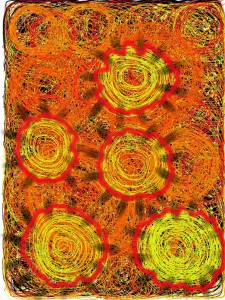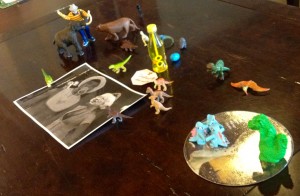
But for writers, I think it’s very important to go outside it on a regular basis. For one thing, your characters are going to be outside their comfort zones, being challenged, tested, thwarted, more often than not, because one thing about comfort zones is that they can be pretty darn boring to read about. Who wants a character for which everything goes right? (This is, I will argue, why the Richie Rich comic books were pretty darn bland.) How can you write a character outside their comfort zone if you don’t know what it’s like?
And outside our comfort zone is where we learn new things, new skills, new things about ourselves. Here in Costa Rica, my Spanish skill is leaping upward in a way it wouldn’t at home, despite all my best resolutions about daily Duolingo workouts or buying books in Spanish from Amazon. And that in turn has prodded me to try some new things with it, like using one of my stories as a practice piece in translation.
This is why, when I talk to students about going into a workshop like Clarion West or Viable Paradise, I urge them to try to fail. Because you learn so much more from a story where you tried something new and failed than one where you did the same thing you always did. I wrote Zeppelin Follies while at Clarion West as my very first try at a screwball comedy, and I will confess that the first draft was a horrible mishmash of stuff. And boy did I learn a lot from that.
Fortunately, for the vast majority of writers, we like new things. New words, new vistas, new thoughts. And we find them outside that comfort zone, in a place that is frightening and exhilarating all at once. Whizzing along a zipline, diving into waters over our head, talking to strangers. If you doubt that you are brave enough to do such things, remember that you do something braver everyday by putting your writing out there for other people to look at.
Enjoy this writing advice and want more content like it? Check out the classes Cat gives via the Rambo Academy for Wayward Writers, which offers both on-demand and live online writing classes for fantasy and science fiction writers from Cat and other authors, including Ann Leckie, Seanan McGuire, Fran Wilde and other talents! All classes include three free slots.
Prefer to opt for weekly interaction, advice, opportunities to ask questions, and access to the Chez Rambo Discord community and critique group? Check out Cat’s Patreon. Or sample her writing here.







5 Responses
I’ve been reading a lot of shorts lately. I find myself gravitating toward the ones that look like stories I want to write, in terms of formatting. Like I avoid atypical narrative forms or certain tense/pov, thinking I’m going to be writing in my comfort zone.
And yet a lot of my writing after these binges is always a step away from what I know. When the inspiration strikes, the format is different and the story is usually piece in such a way that I couldn’t have known I was looking for it. I wonder if that has to do with an urge to break from the comfort zone.
That’s really interesting. I wonder if having a firm foundation lets you step away like that more easily?
I like to think it’s more a ravenous hunger for challenge! But also, since my writing career is in its infancy, it’s a discovery of what my comfort zone is. Combination of new things becoming comfortable and finding out what I’m capable of.
That’s actually why I picked up Near+Far; I recognized a lot in your voice and rhythm that I wanted to emulate, so I wanted a wider sample size. And was not disappointed 😀
You are very kind, thank you! 🙂